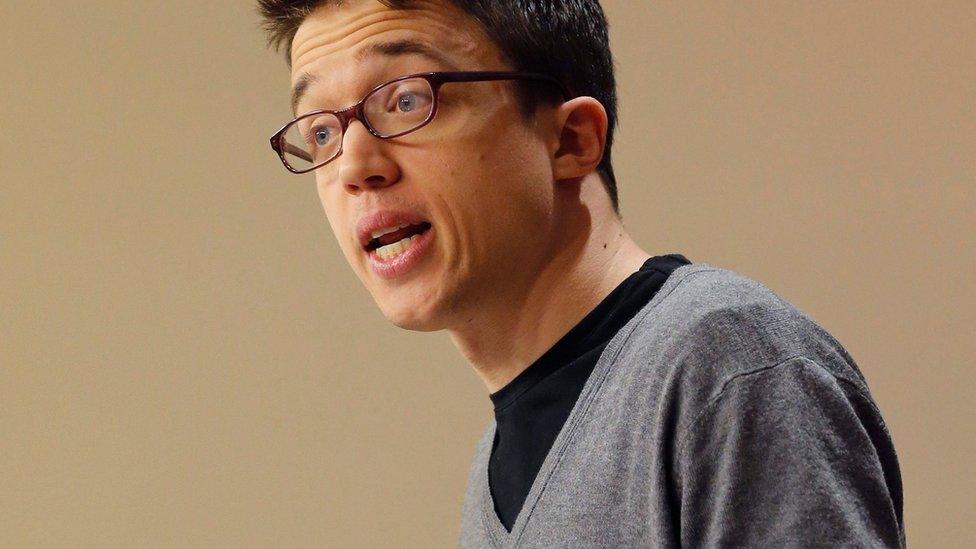Spain election: Podemos leaves Socialist-led talks
- Published

Podemos's Inigo Errejon said the pact between the Socialists and Ciudadanos meant that the policies of the former ruling Popular Party would continue
Spain's anti-austerity party, Podemos, says it is suspending negotiations over forming a government with the Socialists as the country struggles to resolve inconclusive elections.
The announcement came after a pact was agreed between the Socialists and centre-right Ciudadanos (Citizens).
"What has been agreed with Ciudadanos is incompatible with us," said Podemos's Inigo Errejon.
It deals a blow to Socialist leader Pedro Sanchez's hopes of becoming PM.
Between them, the Socialists and Ciudadanos command only 130 seats in the 350-seat lower house - leaving Mr Sanchez far short of a parliamentary majority.
In a vote on 1 March, he will seek the support of deputies in a vote of confidence that the former ruling Popular Party (PP), led by acting Prime Minister Mariano Rajoy, has indicated it is likely to oppose.
Podemos now appears less likely to offer its support - overtly or tacitly, in the form of abstentions - now it has framed the pact between the Socialists (PSOE) and Ciudadanos as "an invitation to the PP".
"For the moment we have failed," Mr Errejon was quoted as saying. "The change [we sought] was not just to remove Mr Rajoy from the Moncloa [prime ministerial residence], but his policies."

Earlier, signing a deal based on a five-point plan for constitutional reform, Ciudadanos leader Albert Rivera had urged other parties to come on board.
Podemos's radical policies are at odds with the liberal-centrist slant of Ciudadanos, and it had already warned they were unlikely to join forces, but it was not clear that Podemos would withdraw from the negotiating table entirely.
Should Mr Sanchez fail to secure an absolute majority on 2 March, he could then aim for a simple majority in a second vote on 5 March.
If he fails, the PP may attempt once again to form a coalition - perhaps a "grand coalition" with the Socialists and Ciudadanos.
If that fails, a new election would have to be called, probably on 26 June.
Mr Rajoy's centre-right PP, which took the greatest number of seats in the election, has already tried to form a coalition without success.